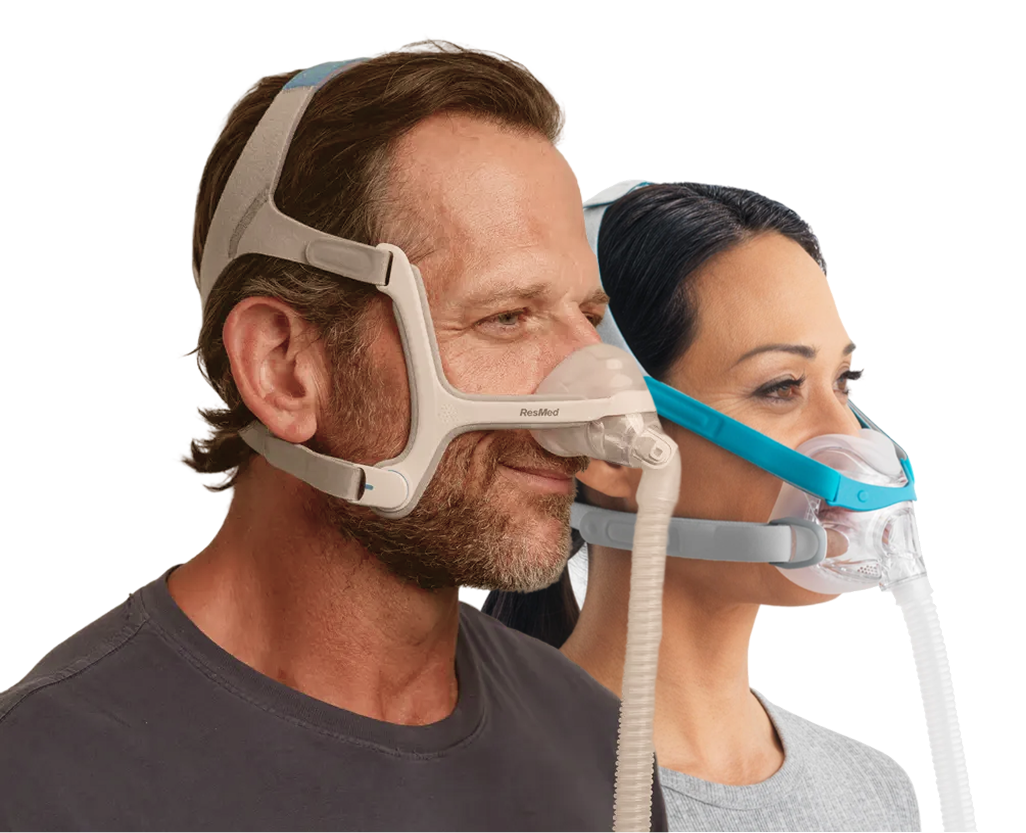CPAP and nebulizer machines are key types of home-healthcare equipment that help people breathe effectively. These breathing devices belong to a broader category of medical equipment designed to actively support full and consistent respiration. This article by CPAP Discount Warehouse will explore the fundamental differences between nebulizers and CPAP machines, their functionalities, intended uses, and how they support patients with various respiratory conditions.
The Differences Between Nebulizers and CPAP Machines
Nebulizers
A nebuliser machine is a medical device designed to deliver medication directly into the lungs by converting liquid medication into a fine mist, which patients inhale through a mouthpiece or mask. This process makes it easier for the medication to reach the respiratory tract, particularly effective for treating conditions like asthma, COPD, and other respiratory ailments.
CPAP Machines
On the other hand, a CPAP machine is primarily used in sleep apnea treatments to address the condition., a condition characterized by periodic breathing interruptions during sleep. The machine works by providing a steady stream of air through a hose and mask to keep the sleeper’s airways open, thus preventing collapses that lead to breathing pauses.
How CPAP and Nebulizer Machines Are Used
Nebulizers for Immediate Relief
Nebuliser machines are often used during acute episodes of respiratory distress to deliver fast-acting relief. They are suitable for all ages, from young children who may have difficulty using inhalers, to elderly patients who need a simple, effective method to administer their medication.
CPAP for Chronic Management
Conversely, CPAP machines are used as a long-term treatment solution for obstructive sleep apnea. Regular use of a CPAP machine can significantly improve the quality of sleep, reduce the risk of heart disease, and decrease daytime fatigue by ensuring adequate nighttime breathing.
>>> BiPAP vs CPAP: How It Works and What's the Difference?
Differences in Design and Operation
Nebuliser machines
A nebuliser features a base containing the air compressor, a tube linking the compressor to the medication chamber, and a CPAP-style mask or mouthpiece. Its straightforward design makes it easy to operate during episodes of respiratory distress. When in use, the nebuliser actively generates a fine aerosol mist for effortless inhalation, enabling the medication to reach deep into the lungs for effective treatment. This prompt delivery is vital during asthma attacks or other acute breathing emergencies.
CPAP Machines
CPAP machines provide a more sophisticated, customisable solution for managing sleep apnoea. Each unit includes a base with a motor, a hose that connects to a mask covering the nose, mouth, or both, and often extra features such as humidifiers and adjustable pressure settings to improve comfort. In operation, the CPAP machine delivers a continuous stream of pressurised air that acts as a splint, keeping the airway open and preventing the obstructions that cause snoring and repeated awakenings associated with sleep apnoea.
>>> CPAP vs Oxygen therapy: What are the Difference?
FAQs About Nebuliser machines and CPAP Machines
Can you use a nebulizer with CPAP?
Use in-line nebulisation with CPAP for patients who show signs of inadequate ventilation, present with bronchospasm (wheezing), and maintain sufficient alertness and respiratory drive to ensure CPAP functions effectively.
Are nebuliser machines effective in treating sleep apnea?
Nebulizers are not used for sleep apnea as they do not keep the airways open. They are meant to deliver medication for diseases like asthma or COPD.
How long do CPAP machines and nebulizers last?
With proper maintenance and care, both CPAP machines and nebuliser machine
What is the flow rate of a CPAP with a nebulizer?
Stability and Performance: CPAP pressure stays consistent across varying nebuliser flow rates (4 L/min, 6 L/min, and 8 L/min) and CPAP settings of 5, 10, and 15 cm H₂O.






